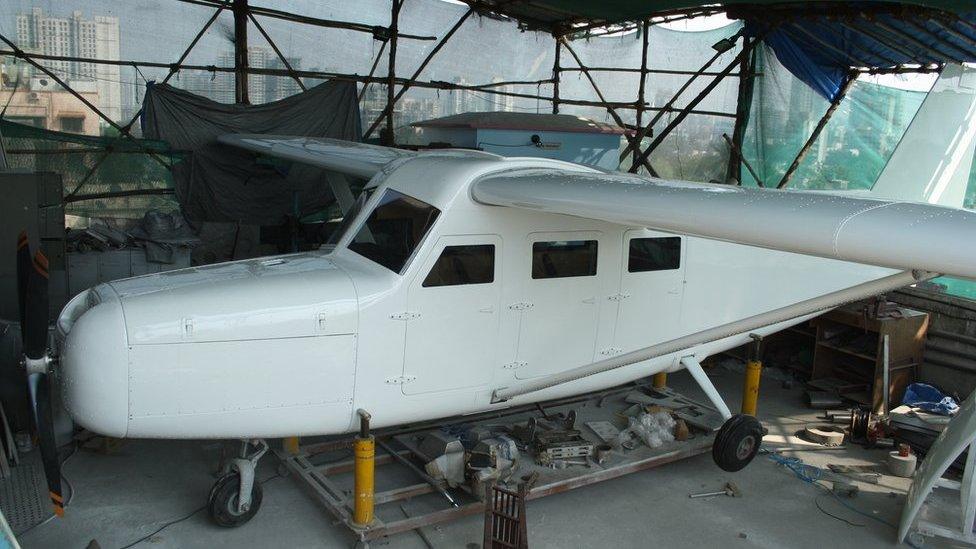The heroic Indian teens who conquered Everest
- Published
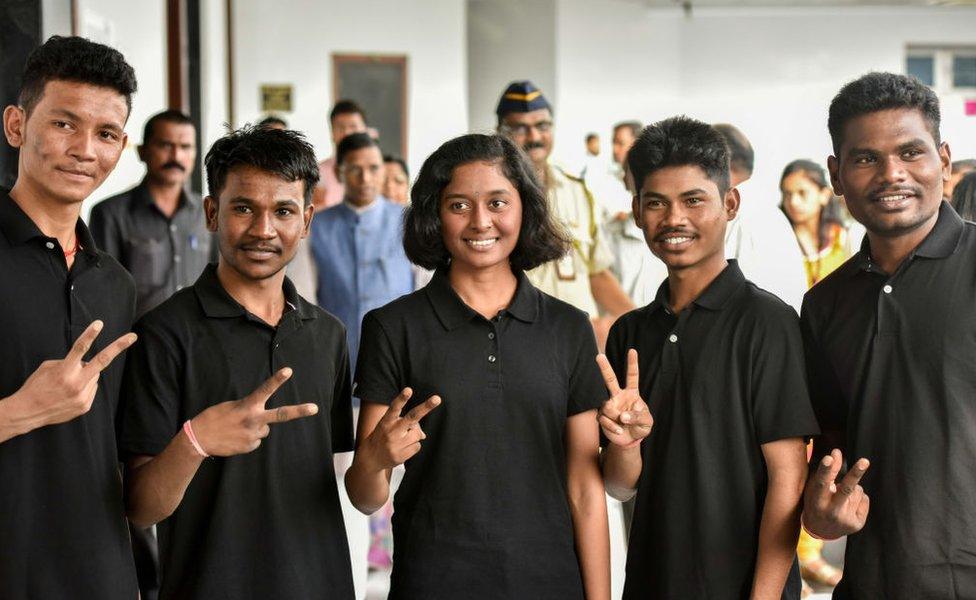
(L-R) Umakant Madavi, Parmesh Aale, Manisha Dhurve, Vikas Soyam and Kavidas Katmode
Five Indian teenagers from a remote rural district scaled Mount Everest in May, etching a name for themselves in history. Jaideep Hardikar reports on their 10-month journey.
"I still pinch myself to make sure it happened," says 18-year-old Manisha Dhurve, who hoisted the Indian flag on the summit of Mount Everest at 04:30am on 16 May.
She says she has achieved what one year ago had seemed unimaginable. And when she reached the top of the summit, her whole life seemed to flash before her eyes. "I remembered my parents, my siblings, my village, my home, our forests, my school, my teachers, my friends, our training, everything."
Manisha was one of a 10-member team that took the giant leap - from a non-descript tribal district in the western state of Maharashtra to the snowy Himalayan peak that is a life-long dream for mountaineers.
The journey from such unlikely backgrounds to the top of the world is hard to overstate.
But only five of the 10 - Manisha, Umakant Madavi, Parmesh Aale, Vikas Soyam and Kavidas Katmode - succeeded.
"I remember when we went scouting for students in different schools, we asked students to run, and forgot to ask them to stop. After about an hour, we realised Manisha was still running because we never said stop," recalls Avinash Deoskar, who trained them for the expedition.
At 8,848 metres (29,029 feet), Mount Everest, the world's tallest mountain, is notorious for harsh climbing conditions. More than 200 people have been killed climbing it. And it takes months of training to prepare for the expedition.
The teenagers say they were inspired by another Indian, Malavath Poorna, who became the youngest girl to scale Everest at the age of 13.
A year ago, none of the teenagers had travelled beyond their village. Now, as they reflect upon the past year, they shake their heads in disbelief.
"It was a narrow trail in the last lap," says Pramesh. "One wrong move meant falling down."
Vikas, 19, climbed 21,000 feet twice. "I left from the base camp but my friend who was with me fell ill on our way up. I returned with him from a height of 21,000ft because if I had waited for a few more hours, he could have died," Vikas says.
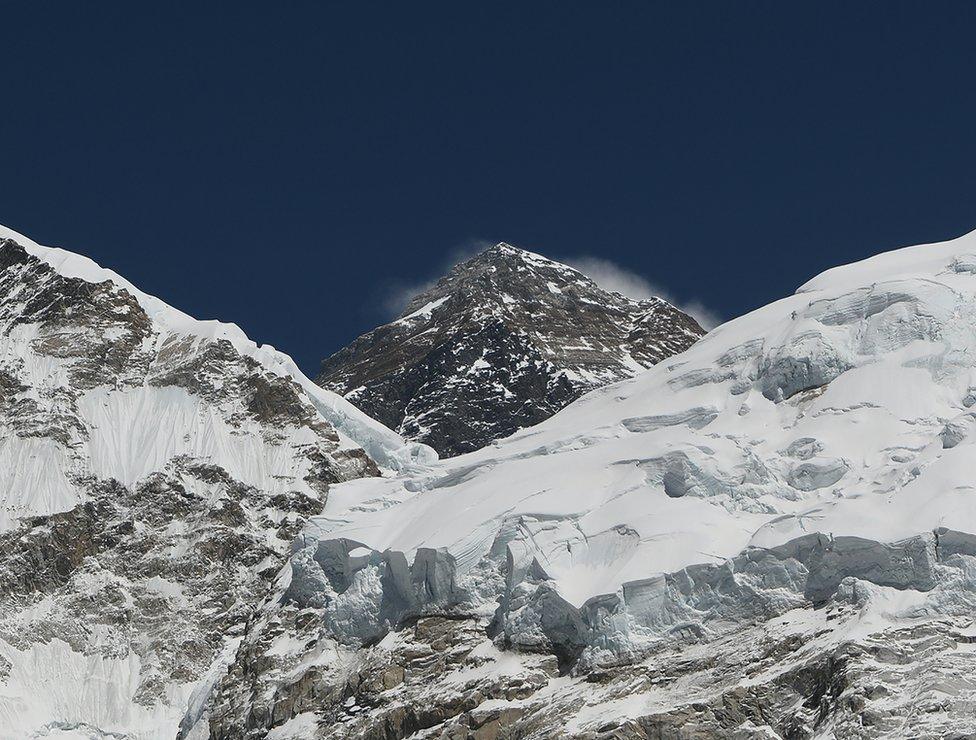
Mount Everest, the world's tallest mountain, is notorious for harsh climbing conditions
But he did not want to give up on his dream. "I was determined to climb the mountain again and I did it. I climbed it all over again," he adds.
Like most climbers, they attempted the feat from the Nepalese side. And like others, they did it in the spring over the few weeks when powerful winds slow down briefly. More than 300 people were given permission to climb Everest this season.
It's also expensive - a single permit costs thousands of dollars.
But a senior district official, Ashustosh Salil, who had first come up with the idea of sending tribal children on the expedition convinced the Maharashtra government to earmark about 40 million rupees ($570,560; £443,703) for the mission.
"We felt this was a great way to instil confidence in these children and inspire others," Mr Salil says.
So 47 students from across Chandrapur district were chosen but only 10 of them made it through 10 months of gruelling training.
They learned rock-climbing at Bhongir, a hilly district in the southern state of Telangana, and trained at the Himalayan Mountaineering Institute in Darjeeling, a hill station in the north east. And finally, they were taken to Ladakh, India's northernmost region, to get accustomed to high altitudes.
"I have been climbing up and down hills to graze goats all my life, and that helped me learn rock climbing techniques quickly," says Kavidas.
None of them knew or had even heard of Everest before this, says Bimla Negi, a veteran Indian mountaineer who trained the students with Avinash Deoskar, who is her husband.
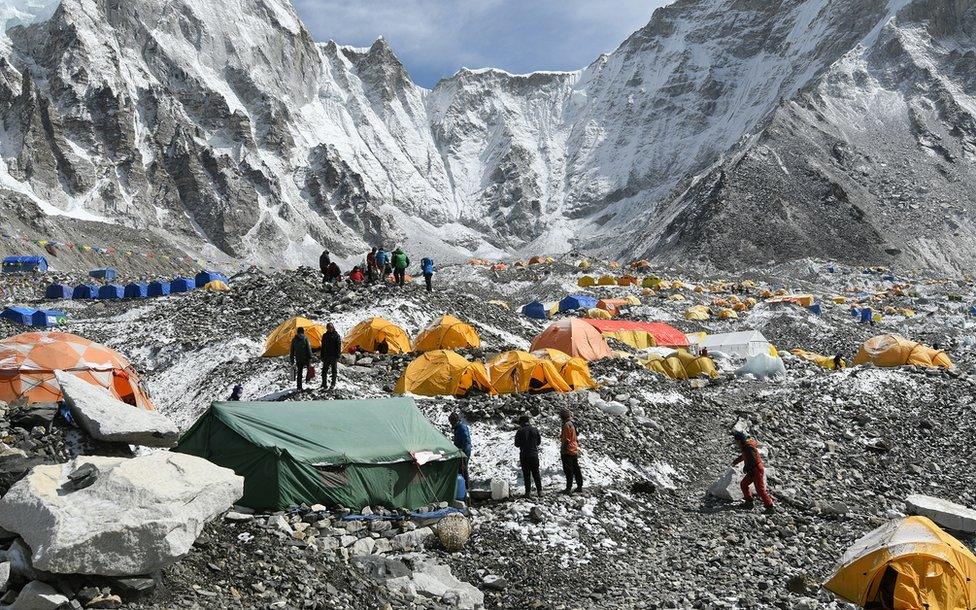
More than 300 people have been given permission to climb Everest this season
The expedition itself took around one month. They speak of battling low oxygen, extreme temperatures (-45C), fatigue and even hallucinations.
The most difficult part of the training, Mr Deoskar says, was keeping them fed and rested. They ate a lot of dry fruits and nuts - although they had never eaten dry fruits before. Their families could barely afford milk or meat every day.
"We were surprised to see how quickly they adapted, learnt their lessons and used their common sense to do what thousands of mountaineers fail to achieve," Ms Negi says. "What is remarkable about is that they stuck together as a group."
In the final leg of her climb, Manisha recalls seeing a dead body. For a moment, she says, her legs trembled but her Sherpa guide shouted at her to keep moving. Within a couple of hours, Manisha had reached the peak.
But only five of them made it to the top. Four of them returned to the base camp from different stages of their climb after they fell ill. And a fifth climber, Indu Kannake, was forced to come back because her Sherpa had to leave as he was needed to save the life of another climber.
She was 1,300 metres from the summit.
"I was that close," she says. "I was initially disappointed but I am happier now that I know that it saved a life. I'll try again, if I get an opportunity."
Indu and the others who couldn't complete the ascent received one million rupees each from the government.
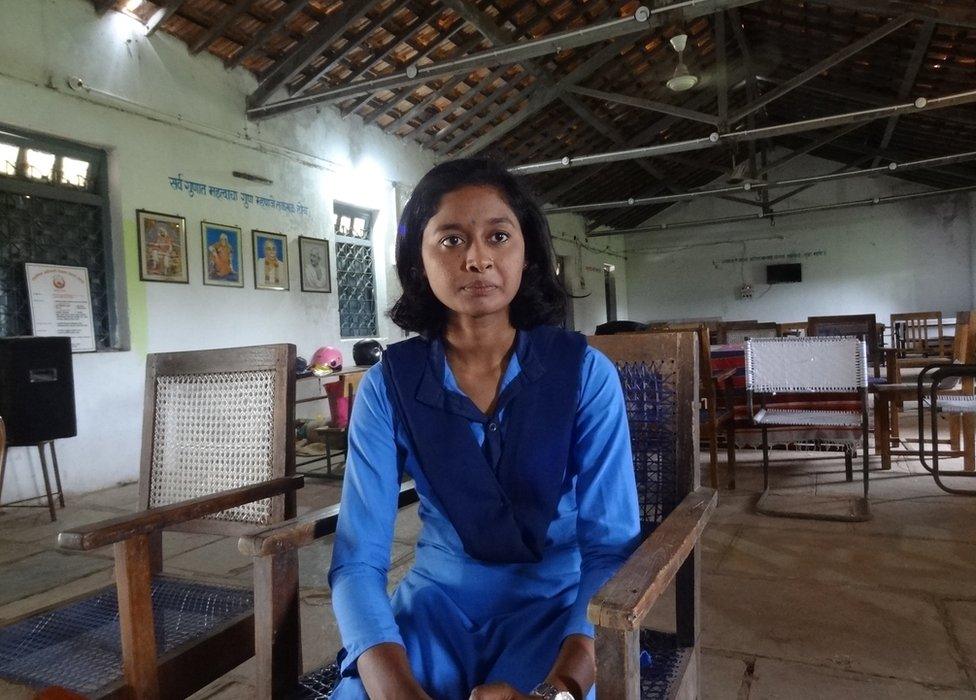
"I still pinch myself to make sure it happened," says Manisha who scaled the peak on 16 May
And the five who succeeded received 2.5 million rupees ($36,000; £28,000).
Kavidas and Parmesh plan to use some of the money to repair their houses and dig a well on their farms to improve irrigation.
Umakant says he wants to build a playground for the children in his village so they can play sports. Manisha wants to use the money to pay for college.
But they all say they want to scale another mountain - perhaps Mount Kilimanjaro.
- Published31 July 2018
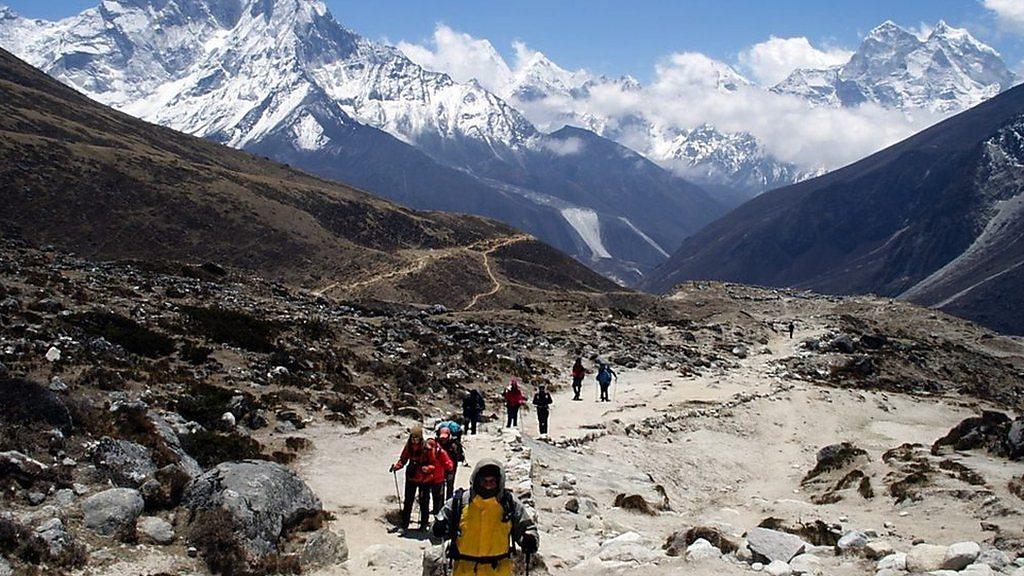
- Published5 November 2017
